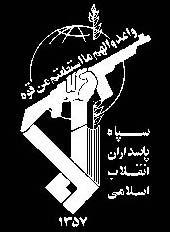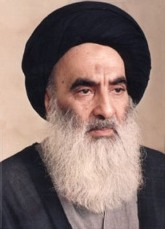Commenting on Friday's arrest and 11 hour detention of Sayyed Ammar al-Hakim - the son of SCIRI president and United Iraqi Alliance leader, Sayyed Abdul Aziz al-Hakim - spokesman for the U.S. embassy in Baghdad, Lou Fintor said:
"What I can tell you is that at this point we understand that Mr. Hakim was arrested by soldiers who were doing their duty. He was not singled out, and we understand the soldiers were following standard procedure since the border was closed."
This is simply untrue. Sayyed Mohsen Al-Hakim, said that his older brother was unlawfully arrested and detained along with several bodyguards in Badre, located in the border between Iran and Iraq on the
pretext that his passport had expired, even though it expires in September 2007 and that in any event, it is not the responsibility of the Occupation forces to check passports at entry points; that responsibility
belongs to the Iraqi police. Moreover, both the Iraqi President Jalal Talabani and President of the Kurdistan Regional Government Massoud Barzani, have denounced the arrest as
illegal.
Talabani’s office issued a statement
declaring:
"President Talabani judges that the treatment of Seyyed Al-Hakim was uncivilized and indecent, and he has demanded that the American leadership hold those behind it responsible".
Sayyed Ammar al-Hakim
said of his arrest and detention: "Senior (U.S.) officials intended to arrest me, and these officials gave instructions to personnel at the site." He also
asked: "Is this the way to deal with a national figure? This does not conform with Iraq's sovereignty".
This was undoubtedly a deliberate preplanned act of aggression against the SCIRI, the United Iraqi Alliance, the Iraqi government (including the PUK and KDP), Sayyed Abdul Aziz al-Hakim and the Shia. The United States has publicly accused Iran of interfering in Iraq's internal affairs and supporting the insurgency. A claim that was
dismissed on Saturday by Sayyed Ammar al-Hakim as "unfounded and mere propaganda," and has never been supported by the Iraqi government, President or Prime Minister. Sayyed Ammar al-Hakim also stated that Iran is a friend of the Iraqi people and a benevolent country.
In fact, the Iraqi Prime Minister Nuri al-Maliki has previously accused the Occupation forces of destabilising region,
saying: "If anyone is responsible for the poor security situation in Iraq it is the Coalition".
Moreover, if there was ever any question as to the United States implacable hostility towards Shia Islam and the Islamic Republic Iran, President George W. Bush, spelt it out in his State of the Union Speech 2007 when he
stated: "In recent times, it has also become clear that we face an escalating danger from Shia extremists who are just as hostile to America, and are also determined to dominate the Middle East." Bush also attributed much of the blame for this too the Islamic Republic of Iran, notwithstanding that the elected Iraqi government is predominately Shia and pro Iranian, hence the very people whom Bush refers to as "Shia extremists". In fact, not only is the United Iraqi Alliance pro-Iranian, so too are the main Kurdish parties, the PUK and KDP.
Far from supporting the elected Iraqi government, the Occupiers are actively undermining it. The United States is not interested in stabilising Iraq; quite the reverse, the United States is opposed to an autonomous Shia government of Iraq - much of the anarchy in Iraq can be attributed to this. Thus General Sir Richard Dannatt
statement, "we can’t wish the Islamist challenge to our society away and I believe that the army both in Iraq and Afghanistan and probably wherever we go next, is fighting the foreign dimension of the challenge to our accepted way of life", applies not only to the insurgents in Iraq but also to the elected "Islamist" Iraqi government.
Over eighty percent of the popular vote in Iraq's last national election went to political parties with close political connections to Iran and the Shia constitute over sixty percent of the electorate and even more of the population - individuals of Iranian descent were denied Iraqi citizenship under Saddam Hussein, a policy that has been continued by the Occupiers. Conversely the United States is regarded as a colonial occupier, which has fermented ethnic and sectarian factionalism.
Recent U.S.
allegations that Iran's Pasdaran Qods force has supplied EFPs (explosively formed penetrators) to Iraqi insurgents, which have been flatly rejected by the Iraqi government, are part of a concerted propaganda campaign to demonise Iran. The United States has used these allegations as a pretext to carry out
illegal raids on an Iranian diplomatic mission in Arbil, in which five Iranian diplomats were abducted, and on an
SCIRI compound, in which two Iranian diplomats were abducted. Moreover, earlier this month, U.S. warplanes
attacked a PUK guard post in Mosul killing eight Pesh Merga after President Talabani visited Iran. These acts were all clearly designed to serve as warnings to Iraqi politicians not to engage with Iran.
The arrest and detention of Sayyed Ammar al-Hakim has to be seen in the same light: as a warning to his father, Sayyed Abdul Aziz al-Hakim, vis-a-vis his strong political relationship with Iran. However, the United States massively underestimated the significance of abducting Sayyed Ammar al-Hakim. The reaction from within the Iraqi government has been robust and defiant. President Talabani demanding the culprits be punished and the SCIRI
calling for the occupiers to leave Iraq has ended all pretense that the Iraqi government and the United States are on the same side. The U.S. Ambassador to Iraq, Zalmay Khalilzad was forced to issue a speedy
apology and to preposterously claim that the United States did not "mean any disrespect to Abdel Aziz al-Hakim or his family". It is very significant that Kurdish and Shia politicians have rejected the apology and explanation; the balance of power has now firmly shifted into Sayyed Abdul Aziz al-Hakim favour.






